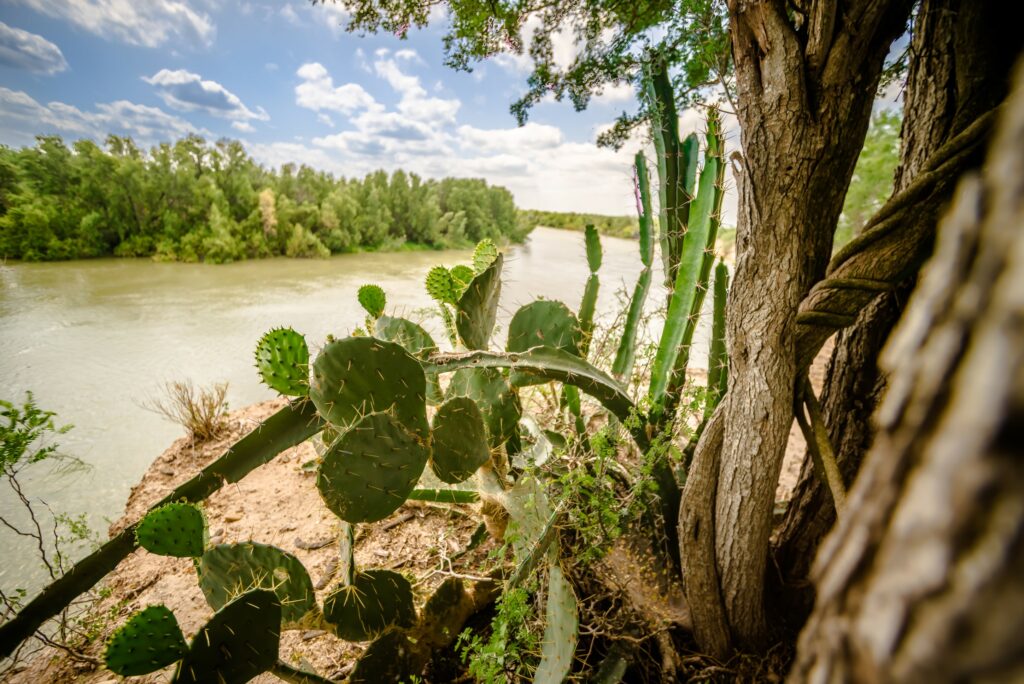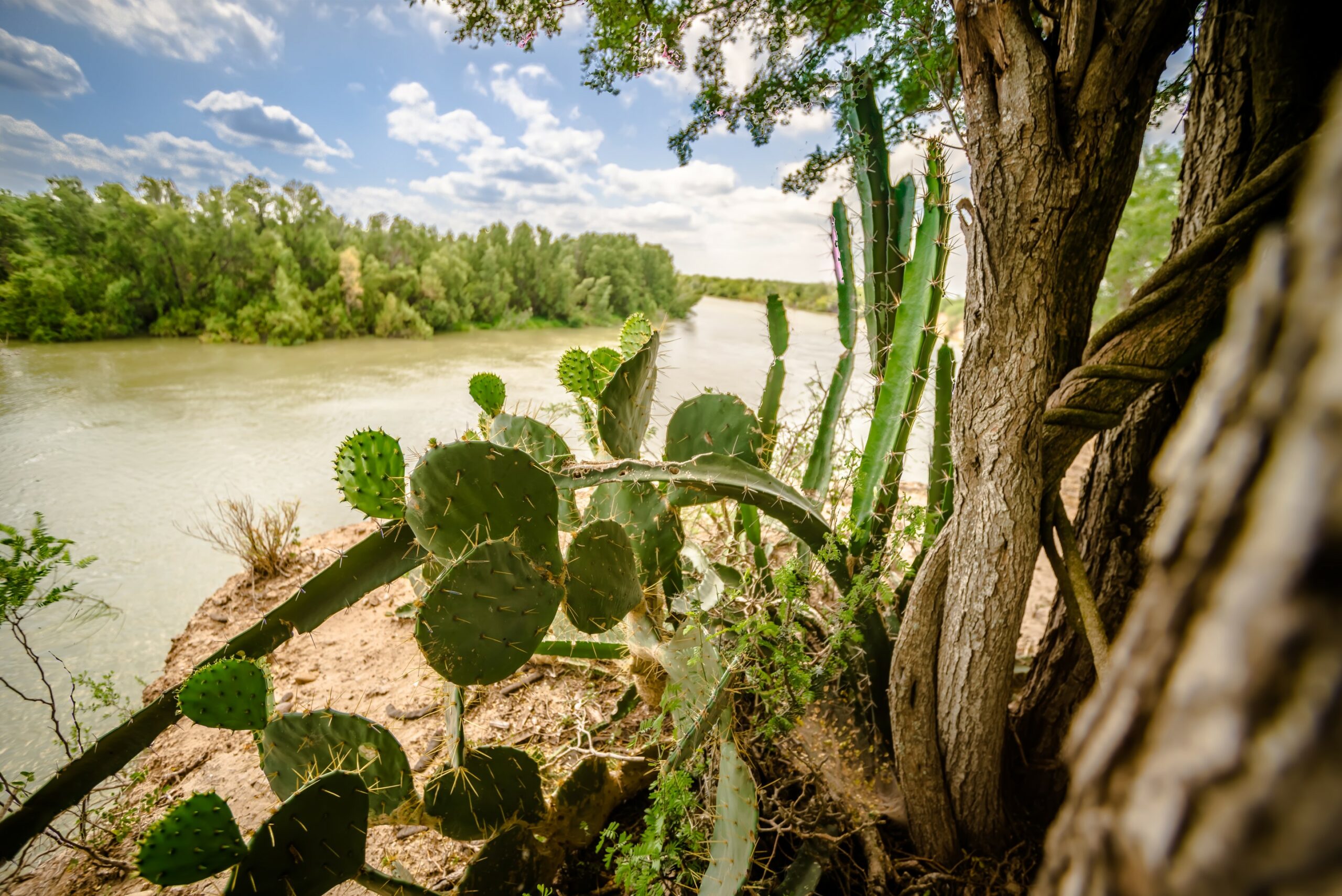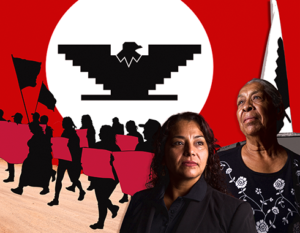Defending The Dignity Of Border Communities Through Narrative Change
How we pave the way for lasting and transformative change for anyone who finds themselves at the nation’s doorstep.

The story of each border resident and visitor has the power to shape the collective imagination of what the border is and should be. When we weave together our stories into a new narrative and redefine the border, we can open new possibilities to win transformative change for border communities. In that spirit, this is my story.
Growing up in Mission, TX, my family was poor, and I often had to use clothing that was too big, or too small, or had holes in it. And I was made fun of for it. A lot. A couple times I was even sent home by the school for wearing clothing with holes and I felt like even the administration was making fun of me.
My response was to try to make myself as invisible as possible. At school, I didn’t speak unless I had to. I kept my gaze to the floor.
In high school, I developed other techniques. I learned to make people laugh, I learned to flirt – anything to draw people’s attention to themselves and away from my flaws.
Later on in college, I decided I wanted to branch out and learn new things. I attended a screening of a documentary about the Coalition of Immokalee Workers and their campaign to change the conditions in the fields of Florida.
I was blown away. There, on the screen, were a bunch of farmworkers, brown like me, even poorer than me, wearing dirty work clothes, standing up in front of crowds of people and declaring they had dignity and that they deserved respect.
Something changed in me. I started to realize that shrinking myself, making myself invisible would not end the indignities poor people faced. I started to realize that only by stepping up and organizing can poor people defend our dignity.
As Rio Grande Valley residents, we know our dignity. We see our dignity upheld in paychecks that equal the true value of our work, quality schools that prepare our children for the future by teaching the truth of our past, and safe air, water and energy that our families can depend on. We feel our dignity violated in the doctors’ visits that bankrupt us, neighborhood streets that flood each time it rains, and border agents that stop us and question us for going about our everyday life.
Wealthy corporations and the politicians in their pockets have shaped the nation’s imagination of what the border is and does. They manipulate border policy to maintain a class of workers who can be exploited. And they peddle a perception of chaos at the border in order to pad their profits with lucrative border security contracts.
They point the finger at Black and brown Texans and new immigrants for the struggles all working people face. They exploit our divisions, and when they have us pointing at each other, they cut funds for the programs and services we all need to thrive. They don’t want us to unite around the things all working people need.
But we know how to defend our dignity. As border residents, we come together in barbecues and bodas, plate sales and bake sales, to help each other through the hard times and celebrate the good ones. When power-hungry politicians and the corporations they serve have gone too far, we’ve joined together to push back. In the 1960s and 1970s, we went on strike for farmworker rights and staged walkouts for civil rights and quality education. In the 1980s and 1990s, we came together and won electricity and running water for colonias. And recently, we rallied and donated to reunite families separated by Trump at the border.
Politicians in power in our state use borders and border policy to exploit our divisions. But border residents know that the river unites us — not divides us — and we are stronger when we come together. Storytelling can help us defend the collective dignity of residents of the nation’s doorstep. Through the stories we tell about who we are, what we want, and who holds us back, we can reshape the national imagination of the borderlands and border communities. We can create a new understanding of border communities as powerful and beautiful, where solutions to our toughest challenges can be found.
To do that, we have to redefine the conflict around the border and migration. We need to create a shared narrative of immigration and the border that casts us as the heroes of our shared destiny.
Narrative change is how we can defend the dignity of the borderlands and pave the way for policies that bring transformative and lasting change. We become the heroes of our shared story when we become storytellers of a new narrative.
Learn how La Unión del Pueblo Entero is telling a new story about border communities. Read LUPE’s borderlands narrative power analysis and strategy for change.


